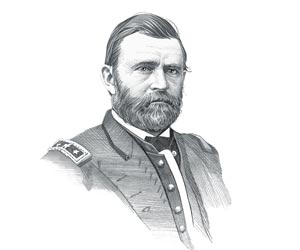|
|
|
|
|
The unusual name of this militant, secret society came from a feisty Irish woman, Molly Maguire, who led violent Anti-landlord Agitators in Ireland during the 1840s. On June 21, 1877, 20 members of the Molly Maguires were unjustly hanged for murder, and later received posthumous pardons.
The
Molly Maguires Facts for kids The original Molly Maguire was a legendary Irish woman who led protesters against tyrannical English landlords who attempted to steal their homes and lands. The first 'Mollies' were renown for bloody bare knuckle fights with their oppressors. The secret society of Irish and Irish-American coal miners proudly adopted the name for their own secret society. The Mollies emerged during the economic depression known as the Panic of 1873 that lasted for six years and lead to financial hardship, destitution civil unrest, demonstrations and the first nationwide strikes. Over one million Irish immigrants fled the devastation of the 1845 Irish Potato Famine to seek a new life in the United States. The men took work where they could get it many on the railroads and others in the coal mines of Pennsylvania. The biggest the coal mines were located in Carbon, Schuylkill, Lackawanna, Luzerne, Columbia, Northumberland and Lehigh Counties of Pennsylvania. The Irish were faced with harsh treatment and discrimination. Work in the coalmines was extremely dangerous and the working conditions were appalling. The Workingmen’s Benevolent Association (WBA) was established in 1864 to improve working conditions in the mining industry. However, the organizers of the WBA were also prejudice against the Irish who formed their own union to protect the Irish workers. The Irish group was known as the Ancient Order of Hibernians (AOH). Only Irishmen or American-Irish of Irish descent were permitted to join the AOH society. The Molly Maguires were a secret 'spin-off' organization of the AOH. Only trusted AOH members would be inducted into the Mollies. The identity of members of the Mollies were kept secret as they were militant and would resort to intimidation or violent action if necessary. The working conditions lacked safety precautions and miners were subjected to constant hazards. Both injuries and deaths were frequent occurrences. Their working lives were a constant bitter struggle to survive. Child Labor: Not only were the working conditions terrible but the coal companies also used child labor. The children of the Irish miners started work at the age of just seven years old and worked for a wage of $1-$3 dollars per week until they were 16 years old. The Molllies protested and the coal companies started to recruit other immigrants to replace the Irish. This sparked the 'Long Strike of 1875'. Franklin B. Gowen (the president of the Philadelphia and Reading Railroad, and the Philadelphia and Reading Coal and Iron Company) hired the services of the Pinkerton National Detective Agency to deal with the Mollies and their strike action. Pinkerton selected James McParland an Irishman from County Armagh, to go undercover against the Mollies. James McParland used the alias of "James McKenna" and succeeded in infiltrating the Mollies. James McParland worked with the Coal and Iron Police (nicknamed the "Pennsylvania Cossacks"), a private police force established by the Pennsylvania General Assembly that was employed, and paid for, by the coal companies. Information from James McParland led to the arrest of 60 Mollies in 1875. The arrests ended the strike, however the Coal Companies wanted an example to be made and the men were put on trial. Individual trials were held from 1875 to 1877 in Pottsville, Pennsylvania related to alleged crimes committed by the Mollies. No evidence was given to link the accused to the Molly Maguires, indeed there was no evidence given to prove that such a secret society even existed. 20 men were sentenced to hang to death. The trials attracted hostile newspaper coverage towards the Irish. Public outcry against the Irish was so strong that they were excommunicated from the Catholic church and denied a Christian burial. The media branded the Irish Mollies as ruthless murderers and stated that it was common practice for the Mollies to commit "floggings, lynchings and tar-and-feathers". Twenty men were hanged in Carbon and Schuylkill county prisons for first degree murder on June 21, 1877, based on the dubious testimony of James McParland and the "Pennsylvania Cossacks" The hangings of the Mollies have since been recognized as unjustified. The mollies are revered as Irish heroes. The 1970 movie called the 'Molly Maguires' was directed by Martin Ritt and starred Richard Harris and Sean Connery. |
| US American History |
| 1866-1881: Reconstruction Era |
|
|
|
|
|
First Published2016-04-19 | |||
|
Updated 2018-01-01 |
Publisher
Siteseen Limited
| ||
|
|

